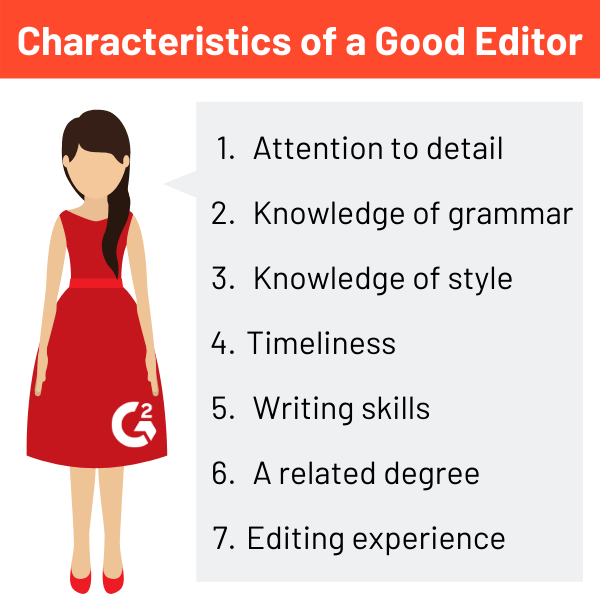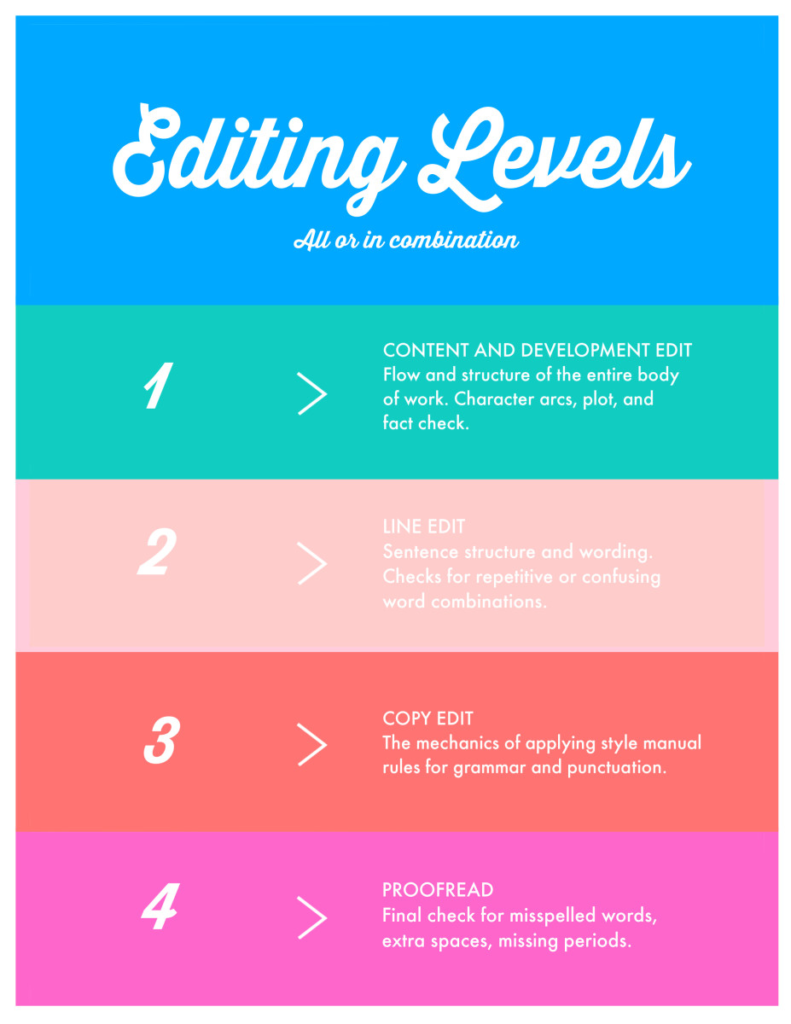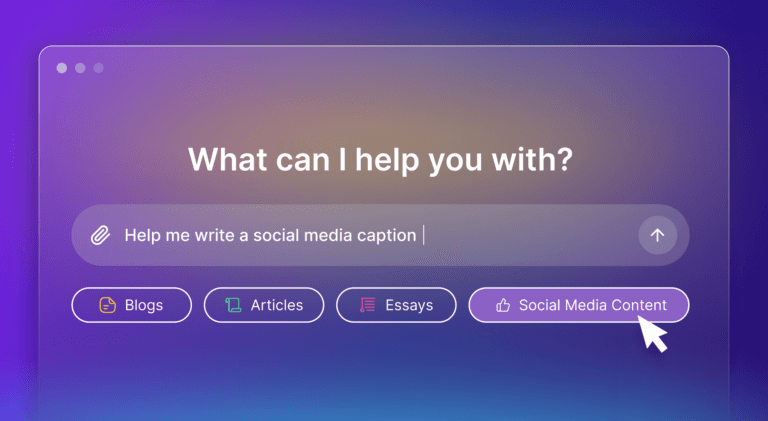
The crux of content and copywriting is clear, concise, and value-driven information. A writer usually shuffles between different content categories. These include blogs, articles, press releases, ad copy, and web content.
Hence, it is common for them to get carried away with the flow and get verbose, which may not be necessary for every piece. Does this mean the writer’s efforts are in vain? Absolutely not! Here, the editor comes into the picture, and brings their skills to the table. Let us explore some editing quotes, which are sure to make a difference in the life of every editor.

7 Inspirational Quotes on Editing
Mentioned below are inspirational lines on editing from some acclaimed writers and editors.
- “The secret to editing your work is simple: you need to become its reader instead of its writer.”
- Zadie Smith, English novelist, essayist, and short-story writer
- “Editing should be, especially in the case of old writers, a counseling rather than a collaborating task. The tendency of the writer-editor to collaborate is natural, but he should say to himself, ‘How can I help this writer to say it better in his own style?’ and avoid ‘How can I show him how I would write it, if it were my piece?’”
- James Thurber, American author, cartoonist, and journalist
- “Editor: a person employed by a newspaper, whose business it is to separate the wheat from the chaff, and to see that the chaff is printed.”
- Elbert Hubbard, American writer, publisher, artist, and philosopher

- “Let’s face it: The ‘genius’ stuff happens in the editing process. Most successful writers go through a tedious process of drafting and shaping their content to get something worth sharing. How do they do this? They write every day. They write a thousand terrible words to find a hundred words worth using. They share their work with a close friend. They edit, tweak, and then ship. But they have to have something to start with. And so do you.”
- Jeff Goins, American author, blogger, speaker, and founder of Tribe Writers, an online community for writers

- “Kill your darlings, kill your darlings, even when it breaks your egocentric little scribbler’s heart, kill your darlings.”
- Stephen King, American author of suspense, sci-fi, and fantasy
- “A good editor is someone who cares a little less about the author’s needs than the reader’s.”
- Dene October, author of Marco Polo and Enchanting David Bowie
- “The first draft is black and white. Editing gives the story color.”
- Emma Hill, author of Ashes of Glass
- “Let the reader find that he cannot afford to omit any line of your writing because you have omitted every word that he can spare.”
- Ralph Waldo Emerson, American essayist and philosopher
- “An editor doesn’t just read, he reads well, and reading well is a creative, powerful act.”
- Susan Hill, author of The Artful Edit: On the Practice of Editing Yourself
- “I’m writing a first draft and reminding myself that I’m simply shoveling sand into a box so that later I can build castles.”
- Shannon Hale, author of young adult books
4 Tips for Editing Well
This is a bonus section that comprises important tips on editing to perfection. Read on.
1. Put yourself in the reader’s shoes
It would be beneficial to assume the reader’s role when sitting down to edit content. A fine line distinguishes a reader from a writer. There is a change in the perspective. It is critical to understand this transition and tap into it. Editing becomes easier when you keep the reader in mind.
2. Practice makes perfect
You should understand that the process of writing begins with editing as its end. Inspirational quotes on editing often suggest that it’s the editors who make a piece of writing worth reading.
However, editing is something no one learns overnight. It all boils down to continued practice. Whether it is seeking inspiration from editing quotes, having a mentor, or reading extensively, you need to keep at it to master the art.
3. Cull out the essentials
When heaps of content are made available to an editor, their role is pivotal in segregating meaningful content from the fluff. With experience and practice, you should be able to understand what adds value to your readers. The mark of a good editor is their ability to identify genuine content from seemingly inspirational paragraphs that have no meat.

4. Put in the work
Masterpieces indeed undergo a lot of work. As an editor, you are required to go through each piece thoroughly, understand the intent of the writer, and work hard to enhance the copy, all while keeping the original tone and style intact.
An editor understands that writing inspirational paragraphs is not enough. They need to convey something meaningful too. However, keep in mind that editing is a subjective activity, which is why edits by one editor may be different from those of another. It is all about displaying uniqueness in your approach.
We hope this blog on editing quotes helps you gauge the intricacies of the editing profession. A professional editor is one who is capable of bringing out the best in the writer. At the end of the day, the writer and editor need to be on the same page. This would benefit the reader in multiple ways, starting with understanding what the content is all about.
FAQs
Content editing involves reviewing a piece of writing to make it effective, comprehensible, and consistent. It should focus on keeping the brand voice intact.
Essentially, editing passes through 3 stages – structural edit, rough copy edit, and final copy edit. Rough copy edit involves line editing and fact-checking.
An editor is responsible for refining and polishing a copy. Their job is to ensure that the copy aligns with the in-house style guides. They also need to check for spelling, grammar, punctuation, and facts.
To start as an editor, you need to possess a bachelor’s degree in communications, journalism, or English. Having previous writing and proofreading experience will help you earn brownie points.
Quotes on editing state that editing helps deliver the writer’s thoughts to the readers as precisely as possible. Ultimately, it works wonders to keep the readers hooked to the writer’s ideas.
Though the role of an editor is not to rewrite, there are cases where the editor may have to open up to the idea of rewriting to make the piece more engaging.
Latest Blogs
Learn how to rank on AI search engines like ChatGPT, Perplexity, and Gemini by optimizing your content for authority, structure, and relevance. Stay ahead in AI-driven search with this strategic guide.
Explore the best healthcare SEO services for your medical practice. Improve online visibility and effectively reach more patients in need of your services.
Discover top social media agencies specializing in banking solutions, enhancing financial services and driving engagement.
Get your hands on the latest news!
Similar Posts

B2C Marketing
5 mins read
Top Choices for Best Content Marketing Services in B2B Industries

Artificial Intelligence
5 mins read
How A Lead Generation Specialist Can Use AI-Powered Content Funnels to Drive Conversions

Artificial Intelligence
4 mins read